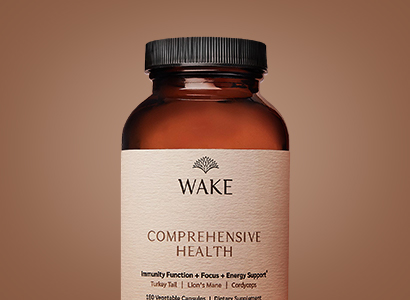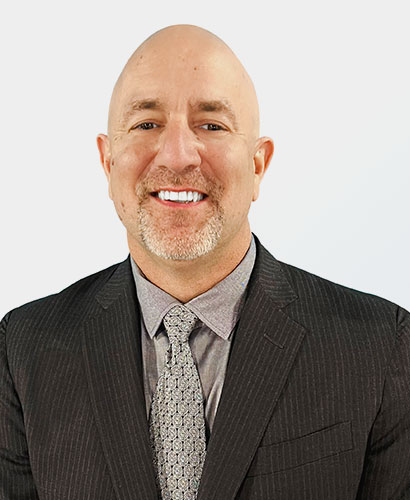Revitalist Clinic Tampa
Ketamine Counseling
Home Ketamine Therapy
Spravato Ketamine Therapy
Veterans Therapy
Adolescent Therapy
Athletic Therapy
Ketamine Therapy
Tampa, FL
Revitalist Tampa is the industry-leading medical clinic in Tampa, FL, specializing in innovative Ketamine therapies. We are committed to providing our patients with comprehensive, personalized care to help improve their quality of life.
What is Ketamine Therapy?
In Tampa, Ketamine Therapy is becoming a helpful solution for people with serious mental health challenges. Ketamine was first approved by the FDA as an anesthetic, but now it’s used to help treat problems like depression and PTSD, especially for those who haven’t had success with regular treatments. Unlike typical antidepressants that can take weeks or even months to start working, ketamine works fast, giving quick relief for those who need help right away. This has made it a popular option for locals who want a faster way to feel better.
Revitalist, a trusted provider in the Tampa area, offers Ketamine Therapy near me through either Ketamine Infusion Therapy or Ketamine-Assisted Psychotherapy. These services are personalized to meet the unique needs of the community, helping people manage stress and find relief from tough conditions that haven’t responded to other treatments. For many in Tampa, having access to this kind of therapy has made a big difference, especially as more people start talking about mental health and wellness in the area.
Ketamine Therapy in Tampa in Hillsborough County, can reduce feelings of hopelessness and self-harm much faster than traditional medicines. By changing certain chemicals in the brain and helping rebuild important connections, ketamine is seen by many as a major breakthrough in their mental health journey. Because of its FDA approval and the strong reputation of Revitalist in Tampa, this therapy has become a reliable choice for people who need an effective, science-backed treatment.
What Conditions Can Ketamine Therapy Treat?
Ketamine for Treatment-Resistant Depression
For people in Tampa struggling with depression that doesn’t respond to other treatments, Ketamine Therapy offers new hope. Regular antidepressants can take a long time to work, which leaves many people waiting for relief. Ketamine, on the other hand, works by affecting a brain chemical called glutamate, which helps build stronger connections in the brain and reduces symptoms of depression quickly. This quick effect is especially important for those in Tampa who need help fast, whether it’s a parent trying to keep up with their family or someone balancing a stressful job.
Ketamine for PTSD (Post-Traumatic Stress Disorder)
Many people in Tampa, especially those who have had major life events or stressful jobs, deal with PTSD. Ketamine Therapy helps manage PTSD by helping the brain grow new connections and reducing symptoms like flashbacks, anxiety, and always feeling on edge. This helps people process bad memories better. Ketamine has become an important option for veterans and first responders in Tampa who need something that works faster than traditional medicines.
Ketamine for Anxiety Disorders
In a close community like Tampa, stress and anxiety can sometimes feel overwhelming due to social and work pressures. Ketamine Therapy near me can help people who have anxiety problems, like generalized anxiety disorder (GAD) or social anxiety. By changing the pathways in the brain that cause worry, ketamine helps people feel calmer and more balanced. Locals who have used ketamine therapy say they feel a big drop in anxiety after just a few sessions, which lets them be more involved in community events and activities.
Ketamine for Obsessive-Compulsive Disorder (OCD)
For people in Tampa dealing with OCD, Ketamine Therapy is a promising option when other treatments don’t work well. Early studies show that ketamine can help reduce compulsive behaviors and intrusive thoughts, helping people feel more relaxed. This is especially helpful in a community-focused place like Tampa, where being present and connected makes a big difference in quality of life.
Chronic Pain Management
Chronic pain affects many people in Tampa, especially those with physically demanding jobs or past injuries. Ketamine can help manage conditions like fibromyalgia, nerve pain, and complex regional pain syndrome (CRPS). It works by blocking pain signals in the brain, which allows people to enjoy their daily lives more—whether it’s spending time outside in Tampa’s parks or enjoying moments with family and friends without the constant pain.
Other Conditions
Ketamine therapy has been explored for various conditions, particularly when traditional treatments have proven ineffective. Further conditions include:
- Suicidal Ideation: Ketamine’s rapid action can significantly reduce suicidal thoughts, providing critical intervention for individuals at immediate risk.
- Severe Bipolar Disorder: Preliminary research indicates that ketamine may reduce bipolar symptoms by modulating glutamate pathways, though further studies are needed to confirm its efficacy.
- Drug Addiction Rehabilitation: Ketamine has been explored as an adjunct in addiction treatment, potentially reducing cravings and withdrawal symptoms.
- Neuropathic Pain: Beyond its psychiatric applications, ketamine serves as an analgesic for chronic pain conditions, including Complex Regional Pain Syndrome (CRPS), by acting on NMDA receptors to diminish pain perception.
- Cancer Pain Syndromes: Ketamine’s analgesic properties can help manage pain associated with cancer, especially when other treatments are insufficient.
- Phantom Limb Pain: Ketamine may alleviate phantom limb pain by modulating central sensitization and reducing neuropathic pain signals.
While ketamine therapy shows promise across these areas, it’s essential to approach treatment under medical supervision due to potential side effects and the need for individualized dosing protocols.
Mechanism of Action: How Ketamine Works?
Ketamine Therapy works by blocking NMDA receptors and increasing levels of glutamate, which is a chemical in the brain that helps control mood and emotions. This action not only brings fast relief but also helps the brain make stronger connections. Many people in Tampa have seen big improvements in their mental health because ketamine helps them recover faster than traditional treatments that can take a long time to work.
How Ketamine Affects the Brain?
Ketamine affects the brain by blocking NMDA receptors. These receptors are important for controlling how signals move between nerve cells. When ketamine blocks these receptors, it makes the brain release more glutamate, which is a chemical that helps nerve cells talk to each other. Glutamate is important for mood and learning, and when there’s more of it, the brain can grow stronger connections between nerve cells. This growth is called synaptic regrowth, and it helps improve mood and reduce symptoms of depression and anxiety.
Ketamine is known as an NMDA Receptor Antagonist because it blocks these NMDA receptors. By doing this, it helps other brain chemicals work together better. This means people often feel better faster compared to traditional antidepressants, which can take a long time to start working. Ketamine can provide relief within hours or days, which is really important for people who are struggling.
How Ketamine Affects the Brain?
One of the important ways ketamine helps is by making the connections between brain cells stronger. This is called synaptic connectivity. Ketamine also helps the brain repair itself and grow new connections, which is known as cognitive regeneration. For people with depression, their brains might not have enough strong connections, and ketamine helps fix this, making them feel more hopeful and reducing negative feelings.
Ketamine Therapies

Ketamine started out as a proven a safe anesthetic that has been in use since the 1970’s, and now has been proven a safe, effective therapy for mood disorders, PTSD and chronic pain .
Vitamin Infusions

Supplements

Meet Our Team Of Specialists

Kathryn Walker
MSN-Anesthesia MSN-Psychiatry
FOUNDER and CEO, REVITALIST

D. Matthew Dolan
CRNA, APRN, PMHNP-S
REGIONAL CLINICAL DIRECTOR

Bianca Massi, LMHC
Therapist

Gillian Flaherty
M.Ed., LCMHC
VP of Behavioral Health
Step-by-Step Practical Process of Ketamine Therapy
How Ketamine Therapy is Given, Revitalist provides Ketamine Therapy in a few different ways, depending on the patient’s needs and what the doctor thinks is best. The most common ways to give ketamine are through IV infusions, nasal spray (esketamine), and lozenges.
IV Infusion
This is the most common method. In IV infusion, ketamine is given directly into the bloodstream through an IV. Revitalist also offers At Home Ketamine Therapy and Vitamin IV Therapy as additional options for those looking for more convenience or added benefits. IV infusion allows the body to absorb ketamine quickly, giving fast results. IV infusions usually take about 40 minutes, and patients need to stay at the clinic for a little while after to be monitored.
Nasal Spray (Esketamine)
Another way to take ketamine is through a nasal spray called esketamine (brand name Spravato). Revitalist provides Spravato Treatment to help patients with depression. This method allows ketamine to be absorbed through the nasal passages. Patients usually need to stay at the clinic for a couple of hours after using the nasal spray to make sure they are feeling okay.
Lozenges
Ketamine also comes in the form of lozenges that dissolve in the mouth, often paired with therapy to help patients feel more relaxed and ready to discuss their thoughts.
What to Expect During a Ketamine Session?
Before starting ketamine therapy, patients are usually told not to eat or drink for several hours. During the session, a doctor or nurse will monitor the patient’s vital signs, like heart rate and blood pressure, to make sure they stay safe. Ketamine can sometimes make people feel dreamy or disconnected from reality, but these feelings go away soon after the treatment ends. Most patients feel some improvement within hours or days, especially compared to other treatments that take much longer.
What is the most common way to administer ketamine therapy?
The most common way to give ketamine is through IV infusion, which delivers the medication directly into the bloodstream for fast effects.
What should I expect during a ketamine infusion appointment?
During a ketamine infusion appointment, you will first have a consultation with the doctor to review your medical history and create a treatment plan. The infusion itself takes about 45-60 minutes, during which you’ll receive a controlled dose of ketamine through an IV. The procedure is monitored closely to ensure safety.
How long does a ketamine infusion session last?
A typical ketamine infusion session lasts around 45-60 minutes for mental health treatment. For pain management, sessions may involve higher doses and extended duration depending on the individual’s condition and response.
What does the ketamine infusion procedure involve?
The procedure involves placing an IV in your arm, which delivers a mixture that includes ketamine. The doctor monitors vital signs such as blood pressure, pulse, and oxygen levels throughout the infusion to ensure a safe experience.
How will I feel during a ketamine infusion?
Many patients report feeling relaxed or even euphoric during the infusion, and some experience mild dissociation. This effect can be comforting and is considered normal. Patients remain conscious and can communicate throughout the treatment.
What are the after-effects of a ketamine infusion?
After the infusion, patients might feel relaxed and energized. Some may experience mild nausea or slight tiredness. The clinic staff usually monitors patients for 30 minutes to an hour post-infusion, and they recommend rest afterward.
Is nausea common during ketamine infusion therapy?
Nausea is rare but can occur. If necessary, doctors can administer medication, such as Zofran, to alleviate it.
How soon can I expect results from ketamine infusion therapy?
Unlike traditional antidepressants, which may take weeks to show effects, patients often notice improvements in mood and mental clarity almost immediately after ketamine infusion therapy.
Benefits of Ketamine Therapy
Revitalist offers ketamine therapy as a new and promising treatment for different mental health problems, especially for people who haven’t found help with regular treatments. What makes Revitalist special is our caring approach. We combine medical knowledge with compassionate care to create treatment plans that fit each person’s needs. Our team of experienced professionals makes sure the environment is safe and supportive, which helps ketamine work even better. Here are the main benefits:
Fast Relief from Depression Symptoms
Unlike regular antidepressants that can take weeks to start working, ketamine can help reduce depression symptoms in just a few hours. This quick action is very important for people who are in a crisis because it can provide fast relief, lower the risk of harm, and improve overall well-being much sooner than traditional treatments. Studies have shown that just one ketamine treatment can make a big difference in depression symptoms within 24 hours. This fast effect happens because ketamine works on a brain chemical called glutamate, which helps improve mood quickly, especially for those who haven’t responded to other treatments.
Helps with Treatment-Resistant Depression
Ketamine has also shown success in helping people who haven’t gotten better with at least two other antidepressant treatments. This is really important for people with treatment-resistant depression, giving them another option when other treatments have failed. Clinical trials, like those published in the American Journal of Psychiatry, have shown that about 70% of people with treatment-resistant depression respond well to ketamine.
Reduces Suicidal Thoughts
Ketamine therapy at Revitalist has been linked to a quick decrease in suicidal thoughts, which is very important for people at immediate risk. Research shows that ketamine can reduce suicidal thoughts as soon as one day after treatment. However, it is important to know that these effects might not last forever, and more treatments may be needed to keep improving. This makes ketamine especially helpful for people going through severe depressive episodes and those at risk of harming themselves.
Improves Brain Flexibility
Ketamine is believed to help the brain grow and change, which is called neuroplasticity. This means the brain can form new, healthier connections, which can lead to lasting improvements in mental health. Revitalist’s ketamine therapy can help create new pathways in the brain, making it easier for people to build resilience and reduce the chances of depression coming back. Studies have shown that ketamine can help grow new brain cells, which may help people feel emotionally stronger and prevent relapse.
Helps with Other Mental Health Problems
Besides depression, ketamine therapy is also being studied for its possible benefits in treating other issues like post-traumatic stress disorder (PTSD), anxiety disorders, and some substance use problems. Early results have been promising, with patients experiencing fewer PTSD symptoms and less anxiety, especially when other treatments haven’t worked. This suggests that ketamine could be useful for a wider range of mental health conditions. Research is still ongoing to see how well ketamine works for these other issues.
While ketamine therapy has many benefits, it’s important to think about possible side effects and get treatment under medical supervision to make sure it is safe and effective.
Potential Risks and Side Effects of Ketamine Therapy
While ketamine therapy has many benefits, such as rapid relief from depression symptoms and helping patients with treatment-resistant conditions, it is important to understand the potential risks and side effects. Ketamine can have both short-term and longer-term side effects, and it should always be administered under medical supervision to ensure safety.
1. Dissociation and Hallucinations
Patients may experience a sense of detachment from reality, often described as dissociation, and may have hallucinations. These effects are typically short-lived, occurring during or shortly after treatment, and generally resolve within a few hours. This dissociation effect happens because ketamine changes how sensory information is processed in the brain.
2. Cardiovascular Effects
Ketamine can cause increases in blood pressure and heart rate. These changes are usually temporary but require monitoring, especially in individuals with pre-existing cardiovascular conditions. This increase in blood pressure is a natural response to how ketamine affects the chemicals in the brain.
3. Nausea and Vomiting
Some patients report gastrointestinal disturbances, including nausea and vomiting, during or after ketamine administration. These symptoms are generally transient and usually resolve as the medication leaves the body.
4. Cognitive and Perceptual Changes
Short-term confusion, memory impairment, and perceptual changes can occur, leading to feelings of disorientation. These effects typically resolve within a few hours post-treatment. Ketamine works by blocking NMDA receptors in the brain, which can lead to these temporary changes in cognition.
5. Urinary Tract Symptoms
Chronic use of ketamine has been linked to urinary tract issues, such as cystitis and bladder dysfunction. However, these risks are much lower under controlled, medically supervised use. However, these effects are more common with long-term recreational use rather than controlled therapeutic settings.
6. Potential for Dependence and Misuse
There is a risk of developing dependence on ketamine, particularly with unsupervised or recreational use. In medical settings, healthcare professionals carefully monitor dosage and treatment frequency to minimize this risk, ensuring that patients do not develop dependency. This underscores the importance of medical supervision during therapy to mitigate these risks.
It is crucial for patients to discuss these potential side effects with their healthcare provider to ensure that the benefits of ketamine therapy outweigh the risks in their specific case.
How long do the side effects of ketamine last?
Most side effects, such as nausea, dissociation, and elevated blood pressure, are short-term and usually resolve within a few hours after the treatment session.
Are there any long-term risks of ketamine therapy?
Long-term risks are generally rare in medically supervised settings. However, chronic use, particularly recreationally, can lead to urinary tract issues or dependency.
Who should avoid ketamine therapy?
Ketamine therapy may not be suitable for individuals with certain health conditions, such as severe cardiovascular issues, unmanaged high blood pressure, or a history of substance abuse. It’s important to discuss your full medical history with your healthcare provider.
Can ketamine therapy affect cognitive functions?
Yes, some patients might experience temporary confusion or perceptual changes after treatment, but these effects typically resolve within a few hours. Cognitive functions are generally not affected long-term under proper medical supervision.
How can I prepare for potential side effects?
To prepare, it’s recommended to have a calm and quiet space for recovery, avoid driving after a session, and have someone to assist you if needed. Medical professionals will provide guidance on managing any side effects that arise.
Who Should Consider Ketamine Therapy? (Eligibility and Contraindications)
Revitalist’s ketamine therapy has emerged as a potential treatment for various mental health conditions, particularly for individuals who have not responded to traditional therapies. However, its suitability depends on specific eligibility criteria and contraindications.
Eligibility Criteria
- Treatment-Resistant Depression (TRD): Individuals diagnosed with moderate to severe unipolar or bipolar depression who have not responded to prior antidepressant treatments may be considered for Revitalist’s ketamine therapy. This includes those who have tried multiple antidepressants without significant improvement.
- Acute Suicidality: Patients experiencing acute suicidal thoughts or behaviors may benefit from Revitalist’s ketamine’s rapid antidepressant effects. Studies have shown that ketamine can produce a rapid improvement in suicidal thoughts, with effects observed as early as one day after administration.
- Other Psychiatric Disorders: Emerging evidence suggests that Revitalist’s ketamine may be effective for conditions such as post-traumatic stress disorder (PTSD), obsessive-compulsive disorder (OCD), and certain anxiety disorders. However, more research is needed to establish its efficacy across a broader spectrum of mental health issues. Current studies are ongoing, focusing on its use for anxiety disorders, PTSD, and OCD, with preliminary results showing promising outcomes.
Contraindications
- Uncontrolled Cardiovascular Disease: Individuals with uncontrolled hypertension or acute cardiovascular conditions should avoid ketamine therapy due to potential increases in blood pressure and heart rate during treatment.
- History of Psychosis: Patients with a history of psychotic disorders, such as schizophrenia, may experience exacerbation of symptoms with ketamine use. The dissociative effects of ketamine can potentially worsen psychotic conditions.
- Substance Abuse: Active substance abuse, including alcohol or non-prescribed medications, is a contraindication due to the increased risk of adverse interactions and potential for increased dependency. A negative urine toxicology screening prior to the initiation of treatment and during IV ketamine treatment may be warranted.
- Pregnancy and Breastfeeding: Ketamine is not recommended for individuals who are pregnant or breastfeeding due to insufficient safety data in these populations.
- Uncontrolled Medical Conditions: Conditions such as increased pressure inside the skull (increased intracranial pressure), brain tumors, aneurysms, or seizure disorders may pose risks during ketamine therapy. A thorough medical evaluation is essential to assess these risks. A thorough medical evaluation is essential to assess these risks.
Important Considerations
- Comprehensive Assessment: A thorough psychiatric and medical evaluation is crucial to determine the appropriateness of ketamine therapy for each individual. This includes reviewing treatment history, current medications, and overall health status.
- Medical Supervision: Ketamine therapy should be administered under strict medical supervision to monitor for potential side effects and ensure patient safety. This includes monitoring vital signs such as heart rate and blood pressure, as well as observing mental status during and after treatment sessions. This includes monitoring vital signs and mental status during and after treatment sessions.
What types of mental health conditions are eligible for ketamine therapy?
Ketamine therapy may be suitable for treatment-resistant depression, acute suicidality, PTSD, OCD, and certain anxiety disorders.
Who should avoid ketamine therapy?
Individuals with uncontrolled cardiovascular disease, active psychosis, ongoing substance abuse, or certain uncontrolled medical conditions should avoid ketamine therapy.
How is eligibility for ketamine therapy determined?
Eligibility is determined through a comprehensive psychiatric and medical evaluation, which includes discussing treatment history, current health conditions, and risk factors.
What are the contraindications for ketamine therapy?
Contraindications include uncontrolled hypertension, psychotic disorders, pregnancy, substance abuse, and specific medical conditions like brain tumors or increased intracranial pressure.
Why is medical supervision important during ketamine therapy?
Medical supervision ensures patient safety by monitoring for side effects, managing risks, and providing immediate care if necessary during and after treatment.
BRITISH VIRGIN ISLANDS
Wellness Retreats
Immersive wellness retreats in the beautiful British Virgin Islands hosted by Revitalist trained professionals, harnessing multiple healing modalities with a focus on advanced mushrooms and clinical technology to create a foundation for personal transformation. Our goal is to advance scientific knowledge around the healing power of mushrooms.



